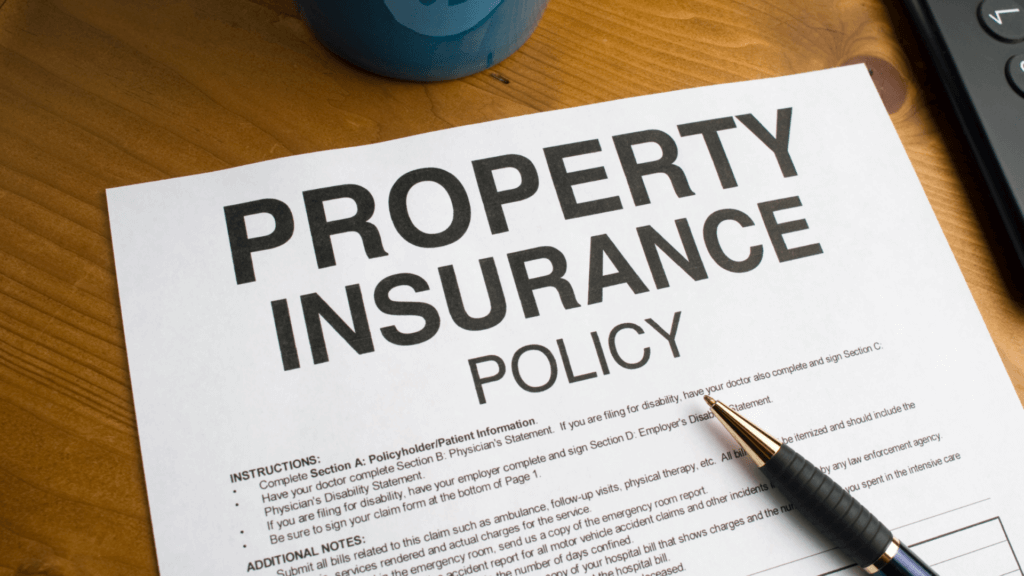
It can be easy to assume that when a business suffers any kind of damage, it will be covered by insurance. This is often not the case, however, as most insurance policies contain certain caveats regarding what can and cannot be covered. Commercial property owners should be aware of what is (and is not) covered by property damage insurance for their businesses under a commercial property policy.
Commercial Claims Covered by Property Damage Insurance
When owning and operating a business, protecting the property and its contents is a top priority. Most insurance companies offer different types of policies to help protect the business and its valuable assets should an unexpected event occur. Understanding the nuances of a commercial property policy may seem like a daunting task, but it often puts those responsible for the business in a better position should a claim be wrongfully denied or underpaid by an insurance company.
In most instances, three types of policies can be purchased to offer protection against varying causes of damage or loss, including:
- Basic form policies: Provide the least amount of coverage for damage caused by fire, windstorms, hail, lightning, explosions, smoke, vandalism, sprinkler leakage, riots, civil commotion, and sinkholes.
- Broad form policies: Provide coverage for losses included in basic form policies, as well as damage from leaking appliances, structural collapses, falling objects, and ice, sleet, and/or snow.
- Special form policies: Provide the most coverage for a commercial property. This includes insuring against damage from all causes of loss except those specifically excluded in the policy. Most policies exclude damage caused by floods, earth movement, war, nuclear disaster, wear and tear, and insects or pests.
Most claims covered under commercial property insurance include the following:
Commercial Property Damage
Commercial properties will more than likely be damaged at some point throughout their time in operation. Instances of vandalism, damage from natural disasters, and wear and tear over the years are all potential causes of commercial property damage; however, just because a property has been damaged, doesn’t mean the loss will be covered under a commercial insurance policy.
Most often, insurance policies will classify property damage as physical damage to tangible property, such as a building, desk, or computer. Most property damage claims involve injury to tangible property owned by the business or under a business owner’s control. It’s important to note, however, that the specifics of what constitutes actionable property damage are defined by and included within the policy language of each insurance contract. Despite this, complex policy language can sometimes make it difficult to distinguish between what is and isn’t covered. Reviewing a policy with experienced legal counsel can help decipher it.
Three different types of commercial insurance policies cover property damage, including:
- General Liability Insurance: General liability insurance covers common liability claims made by third parties.
- Business Auto Liability Insurance: Business auto liability insurance covers third-party damage claims resulting from business vehicle use.
- Commercial Property Insurance: Commercial property insurance covers damage to business property caused by an unexpected event like a fire, vandalism, or a natural disaster.
Often, these policies are bundled together into what is known as a business owners’ policy (BOP). While individually each of these three policies covers different events, both the business premises and its contents can generally be covered after direct, tangible property damage has occurred. Some insurance policies, however, require that specific perils be named within the contract for them to be covered, while others do not; these are known as named and all perils policies:
- Named Perils: Insurance policies that list out named perils will only cover costs related to events specifically enumerated within the policy; these typically include fire, theft, vandalism, and wind damage.
- All Perils: All perils coverage affords broader protection and generally covers any damage not specifically excluded within the policy.
Business Personal Property
Similar to residential coverage, a business can have personal property that needs protection through an insurance policy. However, the types of property that a business owns are different from those of an individual. Business personal property consists of items that are moveable and not affixed to or associated with the land. Purchasing personal property for a business and insuring it is a tax-deductible business expense.
Business personal property can also be considered tangible or intangible. Tangible personal property can be felt or touched. Generally, this includes the furniture, equipment, vehicles, and other valuable physical items within the business and on its premises. Intangible personal property cannot be felt or touched and can include securities, bonds, and/or a business’s intellectual property. These items are considered personal property because they can be bought, sold, and/or licensed.
Not all business personal property can be insured under a commercial policy. In most cases, business owners will need to purchase multiple policies to ensure adequate coverage. The most common covered business personal property items a business has would include:
- Office supplies
- Furniture and furnishings
- Computers and electronics
- Heavy equipment
- Machinery
- Inventory
- Documents
For a business’s personal property to be covered under an insurance policy, it must be located at the property at all times. In the event it leaves the commercial space, the owner may need to purchase additional coverage. This is particularly true for company-owned vehicles, which are not considered business personal property and must be covered under a commercial auto policy.
For the home-based business models that have become quite popular in recent years, there are certain stipulations regarding what is considered business personal property. For instance, homeowners’ insurance will not cover any business-related losses or business equipment and technology. Home-based business owners will likely need to purchase multiple insurance policies to ensure their operations are properly protected.
Wear and Tear vs. Property Damage
While there are many ways a commercial property can become damaged, it’s important to know whether or not an insurance company will consider the damage caused by a covered cause of the loss or due to wear and tear. This distinction is one of the most common reasons insurance companies use to determine whether a property is damaged by a covered cause of loss. If the insurance company considers the damage to be from wear and tear, it generally will not be covered. This can become tricky, as there aren’t always clearly defined standards for what constitutes “wear and tear,” leaving the determination to the discretion of an insurance adjuster when the claim is investigated. Despite this, “wear and tear” is most often found if it appears a property has not been well maintained.
- Wear and tear: Wear and tear to a property can occur if a property owner does not adequately maintain it. For example, wear and tear is often claimed if a commercial property has a roof that is over 10 years old, has never had any maintenance work done, and begins deteriorating, which causes water to leak into the property. This is not a covered cause of loss because the damage is the result of the property owner’s failure to maintain the roof.
- Property damage: If a covered event, such as a fire, windstorm, or vandalism, causes property damage, the loss will more likely be covered under an insurance policy. For example, if a commercial property has been regularly maintained and experiences a wind and/or hailstorm that causes damage to the building and equipment located inside of it, the property damage would likely be covered. This is because the property owner can prove the property was appropriately inspected and maintained through business records and was damaged as a direct result of a covered weather event.
Insurance Carriers Can Still Act in Bad Faith
Even if a commercial property owner is well versed in their policy’s coverage and works to maintain the property, valid insurance claims for damage can still be denied, underpaid, or delayed. This is because insurance providers aim to make more money to the detriment of their policyholders by not paying out valid claims.
Insurance companies act in bad faith when they choose to grossly underpay, delay, or flat-out deny a valid insurance claim. By law, insurance companies must abide by various legal requirements, including giving proper notification of the receipt of a claim to the insured, letting them know whether or not a claim has been denied and why, and doing so within an allotted timeframe. When an insurance company fails to abide by these legal requirements or the terms of its policy, they are acting in bad faith. When this happens, it is in the best interest of the insured to hire experienced legal counsel.
Commercial Property Insurance Claim Attorneys
Dealing with the actual real-world ramifications of property damage can be incredibly difficult for commercial property owners on their own. Add in going back and forth with an insurance carrier on a property damage claim and it can feel almost impossible. While it can be very beneficial to understand the ins and outs of your business’s commercial property policy, insurers have the potential to place roadblocks in place to prevent claims from being paid out for their benefit.
The seasoned commercial property insurance claim attorneys at Raizner Slania understand just how upsetting these situations can be for business owners trying to get back on their feet. If you are dealing with an insurer that has unfairly delayed, underpaid or denied your valid property damage claim, we can help.


